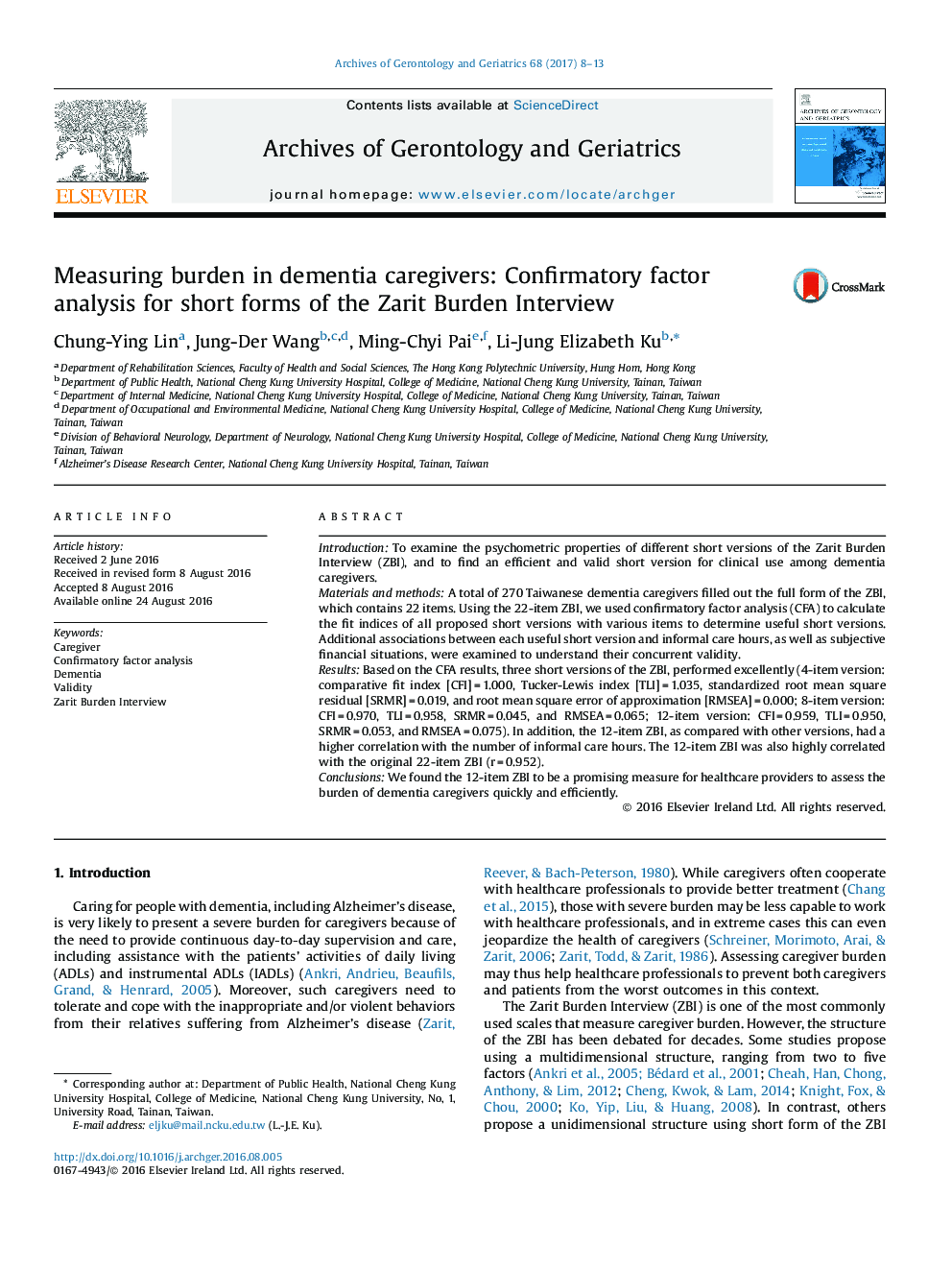| Article ID | Journal | Published Year | Pages | File Type |
|---|---|---|---|---|
| 1902627 | Archives of Gerontology and Geriatrics | 2017 | 6 Pages |
•Based on the confirmatory factor analysis (CFA) results, three short versions of Zarit Burden Interview (ZBI) performed well but the 12-item ZBI performed best in terms of CFA fit statistics, internal consistency, and concurrent validity.•The 12-item ZBI was highly correlated with the original 22-item ZBI and was also moderately correlated with caregiving hours.•The 12-item ZBI was found to be a promising tool for healthcare providers to assess the burden of dementia caregivers quickly and efficiently.
IntroductionTo examine the psychometric properties of different short versions of the Zarit Burden Interview (ZBI), and to find an efficient and valid short version for clinical use among dementia caregivers.Materials and methodsA total of 270 Taiwanese dementia caregivers filled out the full form of the ZBI, which contains 22 items. Using the 22-item ZBI, we used confirmatory factor analysis (CFA) to calculate the fit indices of all proposed short versions with various items to determine useful short versions. Additional associations between each useful short version and informal care hours, as well as subjective financial situations, were examined to understand their concurrent validity.ResultsBased on the CFA results, three short versions of the ZBI, performed excellently (4-item version: comparative fit index [CFI] = 1.000, Tucker-Lewis index [TLI] = 1.035, standardized root mean square residual [SRMR] = 0.019, and root mean square error of approximation [RMSEA] = 0.000; 8-item version: CFI = 0.970, TLI = 0.958, SRMR = 0.045, and RMSEA = 0.065; 12-item version: CFI = 0.959, TLI = 0.950, SRMR = 0.053, and RMSEA = 0.075). In addition, the 12-item ZBI, as compared with other versions, had a higher correlation with the number of informal care hours. The 12-item ZBI was also highly correlated with the original 22-item ZBI (r = 0.952).ConclusionsWe found the 12-item ZBI to be a promising measure for healthcare providers to assess the burden of dementia caregivers quickly and efficiently.
